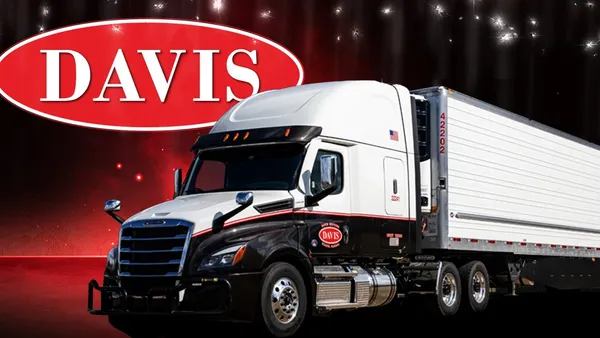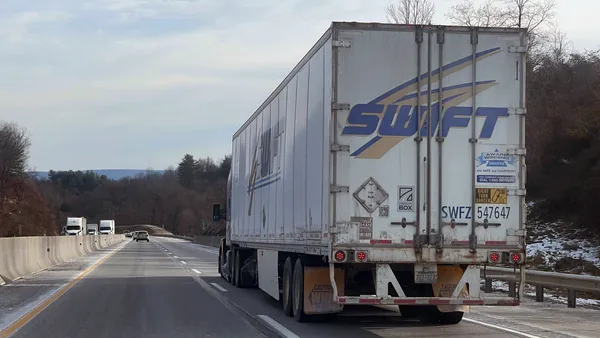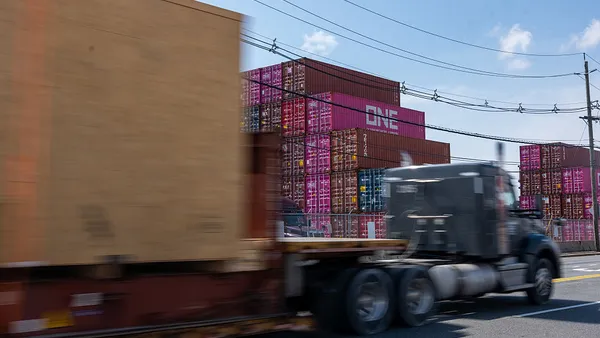Dive Brief:
- Forward Air reported a Q2 net loss from continuous operations of $996.5 million on Wednesday, as the LTL carrier’s integration of Omni Logistics weighed on its earnings results.
- However, executives stressed to investors that the number included a $1.1 billion noncash goodwill impairment tied to the Omni acquisition. Excluding the impairment charge, the company’s quarterly net loss would have been around $3 million, said recently appointed CFO Jamie Pierson.
- While the company expects additional integration costs, Pierson noted “transaction expenses are winding down” and anticipates a return to positive cash flow in the second half of the year.
Dive Insight:
Despite the many hurdles Forward Air has faced since announcing the closing of its merger with Omni Logistics in January, CEO Shawn Stewart said in the company’s earnings release that it is “beginning to see the power of the combination.” But he also recognizes “integrations of this size, magnitude and complexity do not progress in linear fashion.”
The company reported about $10 million in transaction and integration-related expenses for the quarter.
Forward Air for the first time included revenues generated by Omni Logistics, which totaled $311.9 million for the quarter. Combined operating revenues totaled $643.7 million.
Pierson said integration synergies led to about $14 million in quarterly savings and projects an additional $20 million savings by the end of Q1 2025 from actions taken in June. The company laid off an undisclosed number of workers that month, calling it “necessary to right-size the combined companies.”
Another focus of the carrier’s fast-track return to profitability includes selling non-core assets. Forward Air in December sold its final mile business to logistics specialist Hub Group for $262 million.
Pierson said the company has “commissioned a full portfolio review of all our operations with a particular focus on those we deem non-core to our strategy,” but did not elaborate further.
The company anticipates ongoing headwinds from the persistently weak freight market echoed by other trucking executives in recent earnings calls. But Stewart said the integration’s progress toward completion will “position us very well when the freight market returns to normal or improves from current levels.”













